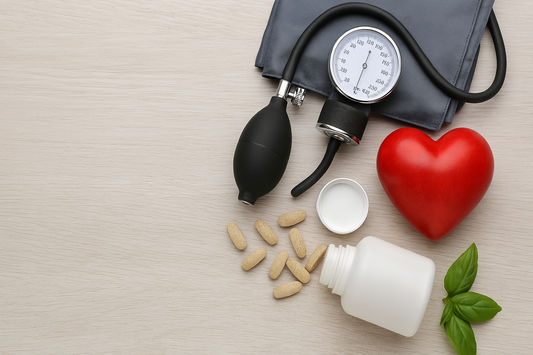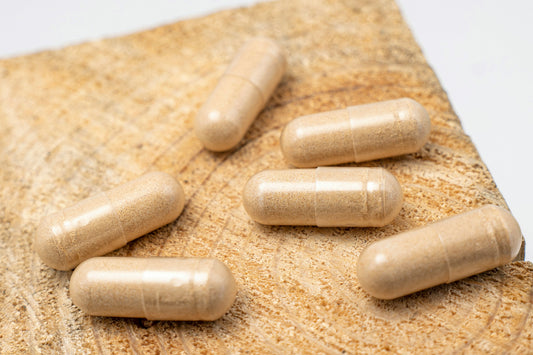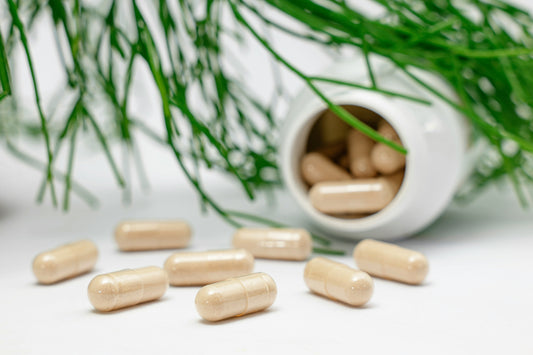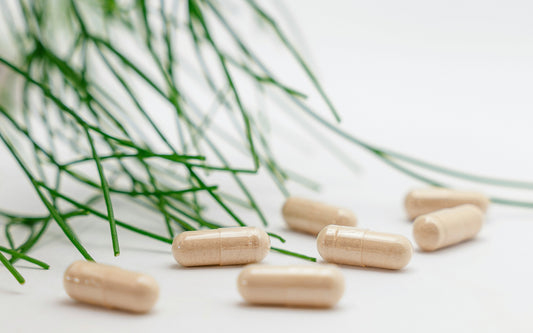12 Foods That Help Lower Blood Pressure Naturally
Lowering blood pressure naturally can be achieved by incorporating certain foods into your diet. A variety of foods have been found to have blood pressure-lowering properties, promoting a healthier heart and robust circulatory system. By including these foods in your meals, you can take proactive steps towards managing your blood pressure levels and improving your overall well-being.
Key Takeaways:
- Berries, such as blueberries and strawberries, contain anthocyanins that help lower blood pressure.
- Bananas are rich in potassium, which reduces the effects of sodium and prevents tension in blood vessels.
- Beets, particularly beet juice, can lower blood pressure due to its high nitrate content.
- Dark chocolate, kiwis, watermelon, oats, leafy green vegetables, garlic, fermented foods, lentils, natural yogurt, pomegranates, cinnamon, nuts, and seeds are all beneficial for blood pressure management.
- These foods contain compounds that relax blood vessels, reduce oxidative stress, and provide essential nutrients like fiber and omega-3 fatty acids, which promote heart health.
In addition to incorporating these blood pressure-lowering foods into your diet, it is important to limit excessive salt, caffeine, and alcohol intake, as they can contribute to high blood pressure. Opting for low-sodium alternatives and adding potassium-rich foods to your meals can help manage hypertension effectively. Drinking beet juice, consuming omega-3 fatty acids from sources like fatty fish, integrating garlic, seeds, and olive oil into your cooking can also contribute to reducing blood pressure. Remember, a healthy lifestyle that includes regular exercise, maintaining a healthy weight, and taking prescribed medications is crucial for effective blood pressure management.
Berries: Blueberries and Strawberries
Incorporating blueberries and strawberries into your diet can help lower blood pressure due to their high anthocyanin content. Anthocyanins are powerful antioxidants found in berries that have been shown to have numerous health benefits, including promoting heart health and reducing the risk of chronic diseases.
Anthocyanins work by relaxing blood vessels, improving blood flow, and reducing inflammation in the body, all of which contribute to lower blood pressure. These compounds also help protect against oxidative stress, which can damage blood vessels and lead to high blood pressure.
Furthermore, blueberries and strawberries are nutrient-rich fruits that are low in calories and high in fiber. This combination makes them an excellent choice for maintaining a healthy weight, which is essential for overall cardiovascular health and blood pressure management. So, next time you're looking for a delicious and healthy snack, reach for a handful of blueberries or strawberries to support a healthier heart and a more robust circulatory system.
Bananas: A Delicious Way to Lower Blood Pressure Naturally
Adding bananas to your diet can be beneficial for lowering blood pressure as they are a great source of potassium. Potassium is an essential mineral that plays a vital role in reducing the effects of sodium and preventing tension in blood vessels, leading to lower blood pressure levels. By incorporating bananas into your daily meals or snacks, you can easily increase your potassium intake and promote a healthier heart and robust circulatory system.
In addition to their high potassium content, bananas are also a rich source of other nutrients that contribute to overall cardiovascular health. They contain fiber, which aids in digestion and helps maintain healthy blood cholesterol levels. The combination of fiber and potassium in bananas can help regulate blood pressure and improve heart function.
To maximize the benefits of bananas for blood pressure management, it is recommended to consume them when they are fully ripe. Ripe bananas have a higher concentration of antioxidants, which can reduce oxidative stress and inflammation in the body. They also provide natural sugars, giving you an energy boost without the added sugars found in processed snacks and sweets.
How to Incorporate Bananas into Your Diet
There are numerous ways to enjoy bananas and reap their blood pressure-lowering benefits. You can eat them on their own as a quick and convenient snack, or add them to your favorite smoothies, oatmeal, or yogurt for a delicious and nutritious meal. For a satisfying and healthy dessert, try freezing ripe bananas and blending them into a creamy, banana "nice" cream.
Remember, while bananas are a fantastic addition to a blood pressure-lowering diet, it is essential to maintain a balanced approach. Incorporate a variety of other foods that promote heart health, such as berries, beets, dark chocolate, leafy green vegetables, and nuts. By combining these foods in your daily meals, you can create a well-rounded and nutritious diet that supports your overall cardiovascular well-being.
Beets and Beet Juice
Consuming beets or beet juice can significantly lower blood pressure because of their rich nitrate content. Nitrates are converted to nitric oxide in the body, a compound that relaxes and dilates blood vessels, promoting healthy blood flow and reducing blood pressure. In fact, studies have shown that drinking beet juice can lead to a significant decrease in both systolic and diastolic blood pressure levels.
Beets also offer other benefits for hypertension management. They are low in calories and high in important nutrients like folate, potassium, and fiber. These nutrients help support heart health and contribute to overall well-being. Additionally, the high antioxidant content of beets helps reduce oxidative stress, which can also play a role in lowering blood pressure.
One convenient way to incorporate beets into your diet is through beet juice. Not only does it provide a concentrated dose of nitrates, but it also offers the added benefit of being easily absorbed and digested. Whether you choose to eat beets in salads, roast them as a side dish, or enjoy a refreshing glass of beet juice, incorporating this vibrant root vegetable into your diet can be a delicious way to naturally lower blood pressure and support cardiovascular health.
Dark Chocolate: A Heart-Healthy Indulgence
Enjoying moderate amounts of dark chocolate can contribute to lowering blood pressure due to its flavanol content. Flavanols are plant compounds that have been shown to have beneficial effects on cardiovascular health, including the relaxation of blood vessels and the reduction of oxidative stress.
Research suggests that dark chocolate, particularly varieties with a higher percentage of cocoa solids, contains higher levels of flavanols. These compounds are thought to stimulate the production of nitric oxide in the body, which helps to dilate blood vessels and improve blood flow, ultimately leading to a lower blood pressure.
While it is important to consume dark chocolate in moderation, incorporating it into a balanced diet can provide heart-healthy benefits. Opt for dark chocolate with at least 70% cocoa solids to ensure a higher concentration of flavanols. Remember that portion control is key, as dark chocolate can be calorie-dense.
Indulge Responsibly for Heart Health
When incorporating dark chocolate into your diet, remember to enjoy it in moderation. A small piece or a square after a meal can satisfy your sweet tooth while providing potential benefits for your heart. Remember that a variety of healthy foods, in addition to dark chocolate, can help lower blood pressure and promote a healthier heart.
By combining these heart-healthy foods within a balanced diet and adopting other lifestyle changes like regular exercise and maintaining a healthy weight, you can take positive steps towards managing your blood pressure naturally. It is important to consult with a healthcare professional for personalized advice regarding your specific situation and any prescribed medications you may be taking.
Kiwis and Watermelon
Including kiwis and watermelon in your diet can support lower blood pressure and promote overall heart health. Kiwis are packed with essential nutrients, including potassium, which helps relax blood vessels and regulate blood pressure levels. Additionally, kiwis are rich in vitamin C, an antioxidant that reduces oxidative stress and inflammation, supporting a healthier cardiovascular system.
Watermelon, on the other hand, is not only a delicious summer fruit but also a hydrating and heart-healthy option. It is a great source of citrulline, an amino acid that helps improve blood flow and relax blood vessels, ultimately contributing to lower blood pressure. Watermelon also contains lycopene, a powerful antioxidant that can help reduce inflammation and protect against heart disease.
The Benefits of Kiwis
Incorporating kiwis into your diet can have numerous benefits beyond blood pressure management. The high fiber content in kiwis promotes digestive health and helps control cholesterol levels, further supporting heart health. Kiwis are also low in calories and packed with vitamins and minerals, making them a nutritious choice for overall well-being.
Watermelon's Wealth of Nutrients
Similarly, watermelon offers a variety of nutrients that promote heart health. It is hydrating and helps maintain proper fluid balance in the body. Furthermore, watermelon is a good source of vitamins A and C, which play a crucial role in supporting a robust immune system and healthy skin.
Incorporating kiwis and watermelon into your diet, along with other blood pressure-lowering foods, can provide a delicious and nutritious way to manage blood pressure naturally and support a healthier heart.
Oats and Leafy Green Vegetables
Incorporating oats and leafy green vegetables into your meals can aid in lowering blood pressure by providing essential fiber to your diet. Oats are a great source of soluble fiber, which helps reduce cholesterol levels and maintain a healthy cardiovascular system. Additionally, the fiber in oats helps slow down digestion and promotes a feeling of fullness, which can prevent overeating and weight gain, both factors that contribute to high blood pressure.
Leafy green vegetables, such as spinach, kale, and collard greens, are packed with nutrients and fiber, making them an excellent addition to a heart-healthy diet. These vegetables are rich in potassium, magnesium, and calcium, which are vital for maintaining healthy blood pressure levels. Furthermore, their high fiber content aids in digestion, promotes satiety, and supports overall cardiovascular health.
Including a variety of leafy green vegetables in your meals, whether raw in salads or cooked in dishes, can help lower blood pressure naturally. Pairing these nutritious vegetables with oats, for example, by sprinkling oats on a salad or adding them to a smoothie, can further enhance their blood pressure-lowering benefits.
Garlic and Fermented Foods
Including garlic and fermented foods in your diet can contribute to lower blood pressure and improved heart health. Garlic, known for its distinctive flavor and aroma, has been valued for centuries for its potential health benefits. Studies have suggested that garlic may help relax blood vessels, which can lead to lower blood pressure levels. Garlic also contains compounds that have antioxidant properties, helping to reduce oxidative stress and inflammation in the body, which are factors that can contribute to heart disease.
Fermented foods, such as yogurt, sauerkraut, kimchi, and kefir, are rich in beneficial probiotics. These probiotics promote a healthy gut microbiome, which plays a vital role in overall health, including heart health. Research has shown that consuming fermented foods regularly may help lower blood pressure levels. The live cultures in these foods have been linked to improved digestion and absorption of nutrients, which can support heart health and contribute to lower blood pressure.
When incorporating garlic into your diet, consider using it as a flavor-enhancing ingredient in savory dishes or infuse olive oil with garlic for a tasty dressing or marinade. As for fermented foods, they can be enjoyed as a side dish, added to salads, or used as toppings for sandwiches or wraps. However, it is important to note that these foods should be consumed as part of a well-balanced diet and lifestyle, and individual results may vary. If you have any underlying health conditions or concerns, it is always best to consult with a healthcare professional or registered dietitian before making significant dietary changes.
By adding garlic and fermented foods to your diet, you can take a proactive approach to managing your blood pressure and supporting heart health. Remember, a holistic approach that includes regular exercise, maintaining a healthy weight, and following any prescribed medications is crucial for the effective management of blood pressure. So, consider incorporating these flavorful and nutritious foods into your meals and snacks to promote a healthier heart and a robust circulatory system.
Lentils, Natural Yogurt, and Pomegranates
Incorporating lentils, natural yogurt, and pomegranates into your diet can support lower blood pressure and overall heart health. These three foods offer a range of benefits that contribute to a healthier cardiovascular system.
Lentils are a great source of plant-based protein and are high in dietary fiber. They help lower blood pressure by reducing arterial stiffness and improving blood flow. The fiber content in lentils also helps regulate cholesterol levels, which is crucial for maintaining a healthy heart.
Natural yogurt, especially the unsweetened variety, contains beneficial probiotics that can help lower blood pressure. The live cultures in yogurt promote a healthy gut microbiome, which has been linked to better blood pressure regulation. Additionally, natural yogurt is rich in potassium, a mineral that helps counteract the effects of sodium and supports proper blood vessel function.
Pomegranates are packed with antioxidants called polyphenols, which have been shown to have protective effects on the heart. These antioxidants help reduce oxidative stress, inflammation, and improve cardiovascular function. Consuming pomegranate juice or incorporating fresh pomegranate seeds into your diet can help lower blood pressure and improve overall heart health.
Cinnamon, Nuts, and Seeds
Including cinnamon, nuts, and seeds in your diet can aid in lowering blood pressure and provide important nutrients for heart health. Cinnamon is a flavorful spice that has been shown to have potential blood pressure-lowering effects. It contains compounds that help relax blood vessels and improve blood flow, contributing to lower blood pressure levels. Sprinkling cinnamon on oatmeal, adding it to baked goods, or using it in a variety of recipes can be a delicious way to incorporate this beneficial spice into your diet.
Nuts and seeds, such as almonds, walnuts, flaxseeds, and chia seeds, are rich sources of heart-healthy fats, fiber, and important nutrients like omega-3 fatty acids. These nutrients have been linked to reduced blood pressure and improved heart health. Snacking on a handful of nuts or adding them to salads, yogurt, or smoothies can provide a satisfying crunch along with a host of health benefits. Similarly, sprinkling ground flaxseeds or chia seeds over your meals or incorporating them into baking can enhance the nutritional value of your diet and support a healthier heart.
Integrating These Foods into Your Diet
To incorporate cinnamon, nuts, and seeds into your diet, try adding a sprinkle of cinnamon to your morning coffee or tea, or stir it into your breakfast cereal. Include a handful of nuts, such as almonds or walnuts, as a snack or as a topping for salads and yogurt. Sprinkle ground flaxseeds or chia seeds over your oatmeal, smoothies, or yogurt for added nutrition. By incorporating these foods into your daily meals and snacks, you can not only enjoy their delicious flavors but also give your heart health a boost and potentially help lower your blood pressure naturally.
Additional Tips for Blood Pressure Management
Besides incorporating blood pressure-lowering foods, adopting a healthy lifestyle that includes exercise, weight maintenance, and prescribed medications is crucial for managing blood pressure effectively.
Regular exercise is vital for maintaining a healthy heart and keeping blood pressure in check. Engaging in activities like brisk walking, swimming, or cycling for at least 30 minutes a day can help lower blood pressure naturally. It promotes better blood circulation, strengthens the heart, and reduces the risk of developing hypertension.
Managing a healthy weight is another key factor in blood pressure management. Excess weight can strain the heart and increase blood pressure. By maintaining a healthy weight through a balanced diet and regular physical activity, you can significantly lower your risk of developing high blood pressure.
In addition to lifestyle changes, prescribed medications can play a crucial role in managing blood pressure. It is essential to follow your healthcare provider's instructions and take any prescribed medications as directed. These medications can help control blood pressure levels and reduce the risk of complications associated with hypertension.
To summarize, while incorporating blood pressure-lowering foods into your diet is important, it is equally essential to adopt a healthy lifestyle that includes regular exercise, maintaining a healthy weight, and taking prescribed medications. By combining these strategies, you can effectively manage your blood pressure and promote a healthier cardiovascular system.
FAQ
Can certain foods help lower blood pressure naturally?
Yes, there are several foods that have been found to have blood pressure-lowering properties.
Which berries are beneficial for lowering blood pressure?
Blueberries and strawberries contain anthocyanins, which can help lower blood pressure.
How do bananas contribute to lower blood pressure?
Bananas are rich in potassium, which helps reduce the effects of sodium and prevent tension in blood vessels, leading to lower blood pressure.
Do beets have any impact on blood pressure?
Yes, beets, particularly beet juice, can lower blood pressure due to their high nitrate content.
Is dark chocolate beneficial for blood pressure?
Yes, dark chocolate contains flavanols that can help lower blood pressure and promote heart health when consumed in moderation.
How do kiwis and watermelon contribute to lower blood pressure?
Kiwis and watermelon are both rich in nutrients that contribute to heart health and can help manage blood pressure levels.
Can oats and leafy green vegetables help lower blood pressure?
Yes, oats and leafy green vegetables are essential components of a heart-healthy diet and can help lower blood pressure due to their high fiber content.
Do garlic and fermented foods have any impact on blood pressure?
Yes, garlic and fermented foods have properties that can help manage blood pressure and support heart health.
Are lentils, natural yogurt, and pomegranates beneficial for blood pressure management?
Yes, lentils, natural yogurt, and pomegranates are all nutritious foods that can help lower blood pressure and prevent hypertension.
Can cinnamon, nuts, and seeds contribute to lower blood pressure?
Yes, cinnamon, nuts, and seeds are all valuable additions to a heart-healthy diet that can help lower blood pressure and provide essential nutrients like omega-3 fatty acids.
What are additional tips for blood pressure management?
In addition to incorporating specific foods into your diet, adopting a healthy lifestyle that includes regular exercise, maintaining a healthy weight, and taking prescribed medications is essential for effective blood pressure management.





